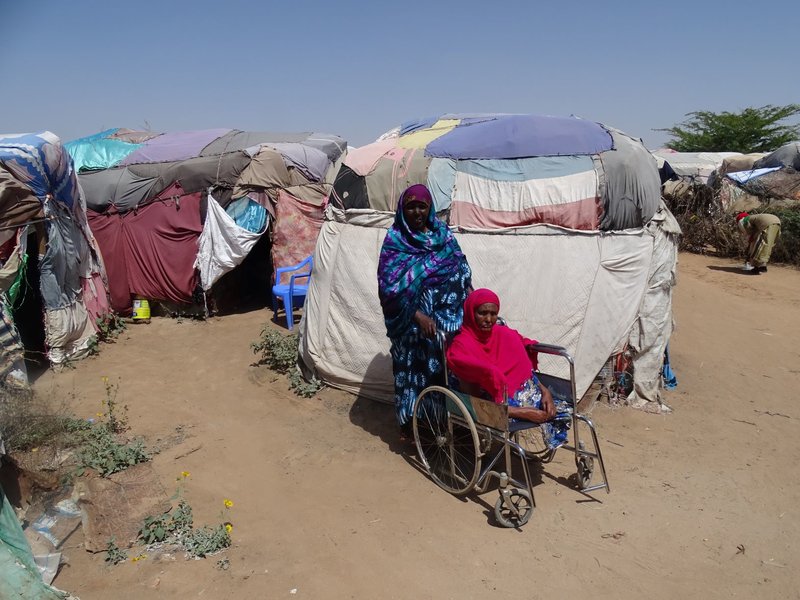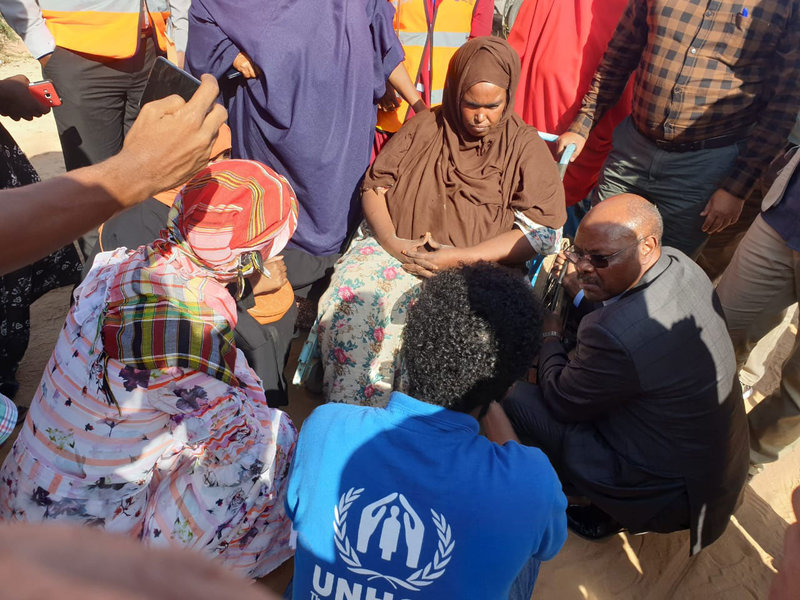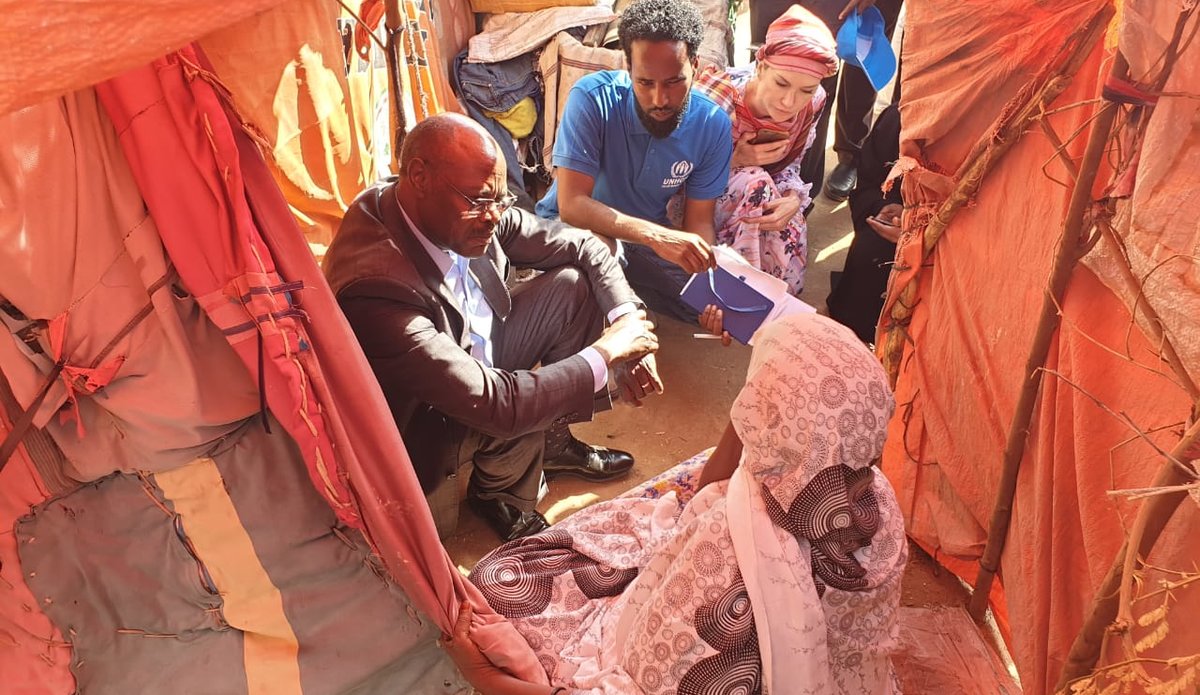On visit to Hargeisa, UN official calls for durable solutions for displaced people
Hargeisa – To reach the Naasa Hablod camp, one must walk on a rough and narrow path, trimmed with thick layers of cactus bushes. The camp of 521 households sits on the outskirts of the city of Hargeisa, in Somaliland, and is home to 3,096 internally displaced persons (IDPs).
Sixty-five per cent of the residents in this camp are women, many widowed or abandoned, who raise their children on their own.
“I’ve been living here with my five children since my husband passed away,” says Maryan, a slight woman in a flowery blue and white dress, as she lifts the cloth that serves as an entrance to her tent dwelling.
“I do the washing here, and the cooking here,” she continues, pointing to two opposite corners of her tiny shelter. To get some cash and meet the family needs, she sends her oldest to the city, to look for menial jobs.
Maryan is one of the IDPs with whom Adam Abdelmoula, the United Nations Resident and Humanitarian Coordinator for Somalia, met and talked with during his recent visit to Hargeisa. He listened to the residents’ stories, which conveyed the daily struggles that are part of life in an IDP camp.
From Ayan, a disabled mother of three, whose wheelchair is scuffed and worn from daily travels on uneven dirt streets of the camp, the UN official heard how the difficulties that IDPs face are amplified by the lack of livelihood opportunities.

“Our biggest need is land,” another resident, a member of the camp committee, told Mr. Abdelmoula. The camp committee works closely with humanitarian partners to deliver assistance to the residents.
A major challenge is ownership of the land on which Naasa Hablod is located – its owners evict the residents on a regular basis. The land issue means there are no permanent facilities, and no schools and clinics nor adequate provisions for sanitation.
The IDPs rely on assistance provided by the various non-governmental organizations working with the local operation of the Office of the UN High Commissioner for Refugees.
Mr. Abdelmoula assured the camp’s residents that he would do everything in his power to ensure their voices were heard.
“I will knock on all doors to find durable solutions for your situation,” he told the IDPs. “You are entitled to live a life of dignity, in a home where you feel safe and empowered to build your own future. And we must do more to ensure this happens. This is the message I will take back to the Government, the UN Country Team and partners.”

 UN
UN





